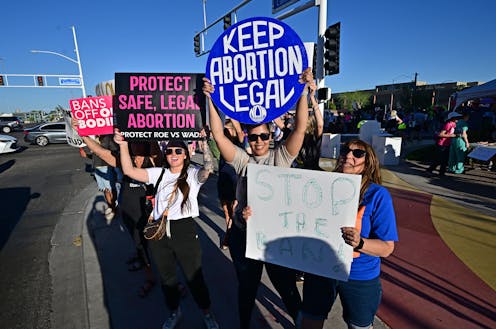People living in states that enacted tighter abortion restrictions in the wake of the Dobbs v. Jackson Women’s Health decision, which returned regulation of abortion access to state legislatures , are more likely to report elevated levels of mental distress. This is particularly true for people of lower socioeconomic means.
These are the key takeaways of our July 2024 paper published in Science Advances . We mined two years’ worth of data from the National Household Pulse Survey and analyzed 21 survey waves, each with more than 60,000 respondents. We were able to trace how newly introduced gestational restrictions and abortion bans affected mental health outcomes such as anxiety, worry, disinterest and depression on a state-by-state basis.

The increase in self-reported mental health issues amounts to an approximate 3% relative rise over the pre-Dobbs baseline of 18% to 26% – a troubling increase by any measure. Two years after the Dobbs decision, the country is still coming to grips with its societal repercussions. Some states have tightened restrictions on abortion , while others have taken measures to preserve access, leading thousands of women to travel across state lines each month to obtain these services.
As of July 2024, 21 states have passed abortion bans or enacted more restrictive gestational limits. The decision to overturn a half-century of legal precedent has deeply affected women’s reproductive care and is altering the legal landscape that governs people.
















